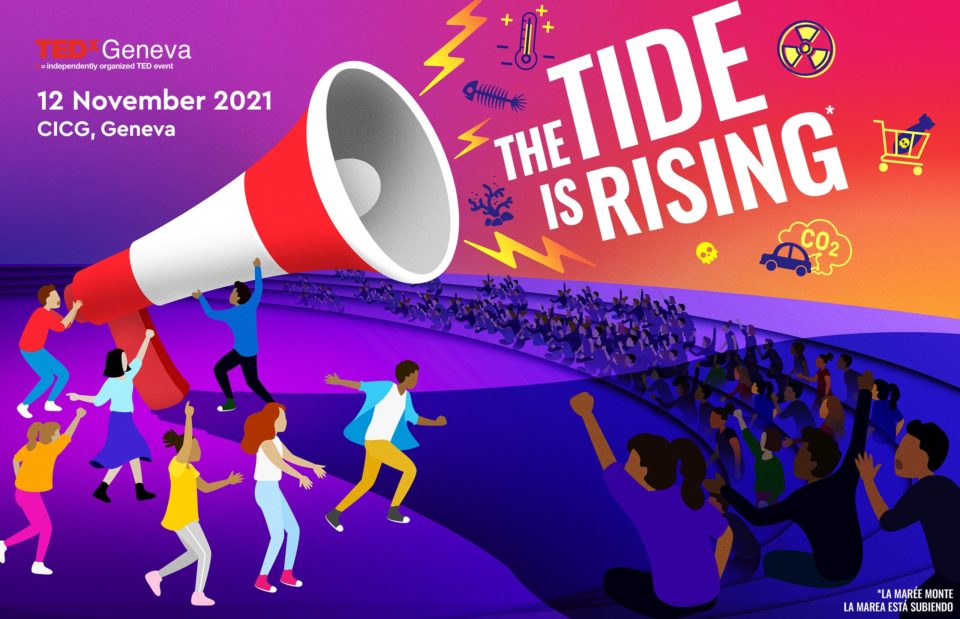We increasingly share our secrets with our smartphones. This intimacy may be built around the experience of enjoyment, the core of entertainment. In fact, entertainment is central to our being in the world, together as communities. After broadcast media, the Internet carried promises of discovery and new experience. It allowed to participate, co-create, become a creator in one’s own right. …
Asexualité et aromantisme | Helio Thiémard | TEDxGenevaStudio
Encore méconnue du plus grand nombre, l’absence d’attirance sexuelle ou amoureuse pour quiconque est la réalité d’environ une personne sur cent. Du concept au récit personnel, cette orientation sexuelle et romantique sera décortiquée, loin des clichés et tout en nuances. Nous approcherons ainsi ensemble une meilleure compréhension des vécus asexuels et aromantiques, pour permettre aux personnes concernées de vivre leur …
Entre tendresse affective et assistance sexuelle | Catherine Agthe | TEDxGenevaStudio
Il n’y a pas de sexualité avec un grand « S ». Il n’existe qu’une multitude de sexualités personnelles, chacune devant être respectée dans son rythme et dans ses expressions… pour nous toutes et tous, et plus particulièrement dans les situations de handicap. Quant aux Droits Sexuels, ils ne comprennent aucune différence ou restriction pour ces dernières. Mais le chemin …
TEDxGeneva édition La marrée monte | 12 Novembre 2021
Plus aucun doute scientifique n’est possible : la marée monte ! La société humaine et son économie mondialisée sont amenées à des changements structurels sur tous les plans. Et c’est vous, “les jeunes”, qui avez la main sur l’agenda. Que ce soit en matière de justice, de changement climatique, d’exigences de tous types, pour des sociétés plus justes et plus …
It Stinks — Clean It Up! | Amy Meek | TEDxGeneva
Along with her younger sister Ella, Amy Meek is the 18-year-old cofounder of the environmental charity Kids Against Plastic. After studying the UN’s Sustainable Development Goals in 2016, the sisters were motivated to address the global issue of plastic pollution, seeing the devastating impact humans’ misuse of plastic was having on the planet and the potential plastic legacy set to …
Learning from nature’s stewards: a cryptocurrency to reverse deforestation | David Dao | TEDxGeneva
Although only 5% of the population, Indigenous Peoples protect more than 80% of our planet’s biodiversity – but they struggle finding funding. The Kayapo people, an indigenous tribe protecting the largest continuous tropical forest area in the Amazon, have an evocative word for money. They call it piu caprim — the ‘sad leaves’. Money has in the past motivated illegal …
Djeli chante pour la paix, la liberté, la joie et le partage | Djeli Moussa Condé | TEDxGeneva
Il cherche à défendre des justes causes et se bat contre la pollution environnementale ou la surpêche industrielle, tellement présente et dévastatrice dans son pays d’origine. Ces chansons décrivent un être humain qui va trop loin, qui dépasse la ligne rouge. Mais sa musique nourrit l’âme. Quel bonheur !
Divers vers verts un peu sévères sur nos travers | Florent Mariaud | TEDxGeneva
Flojito, journaliste, slameur et militant climatique de 30 ans, dévoile à travers son parcours le rôle crucial de l’art engagé dans l’avènement d’une conscience écologique globale. Il nous raconte comment sa rencontre improbable avec la poésie lui a fourni une corde pour s’extirper du trou creusé par des années déco-anxiété. Fort de son vécu, Flojito prône que l’art engagé est …
L’éco-anxiété, ce formidable tremplin vers l’action collective | Léa Geindreau | TEDxGeneva
De plus en plus de jeunes déclarent souffrir déco-anxiété, et avoir du mal à se projeter dans l’avenir en raison des dérèglements climatiques. Mais aujourd’hui, au lieu d’être paralysante, cette éco-anxiété peut être un moteur puissant pour passer à l’action. C’est le cas de Léa, activiste climat, qui milite pour la justice climatique et sociale. Qui participe à construire le …
Retiring farmlands to put carbon back where it belongs | Stephen Bell | TEDxGeneva
There is no better evidence of humanity’s impact on Earth than the billions of hectares of land we have converted from natural vegetation into agriculture. While these vast expanses of croplands and pastures have fed the world, the once fertile soils below them have become degraded, depleted, and tired. The loss of carbon previously stored in these soils, in addition …










